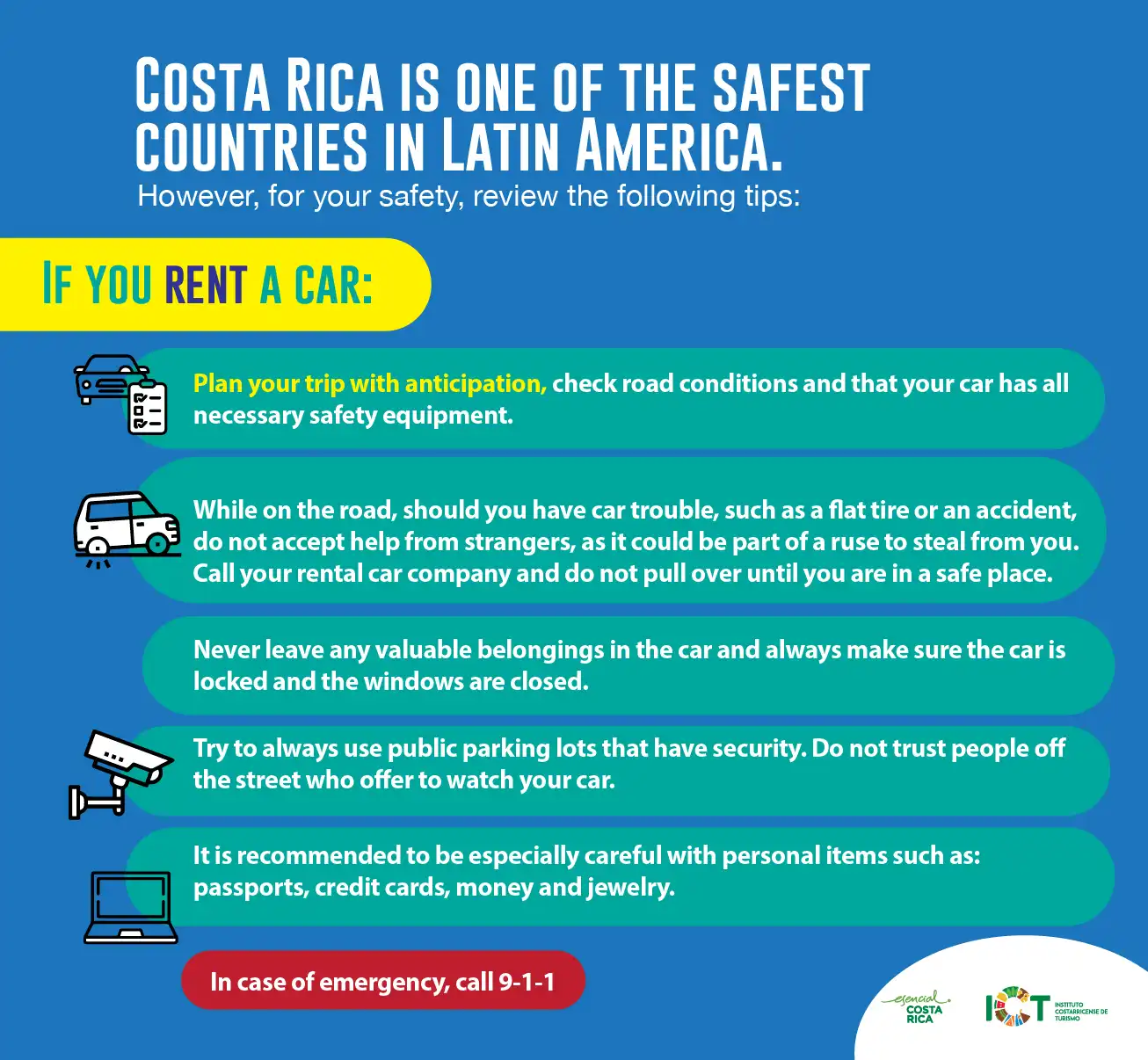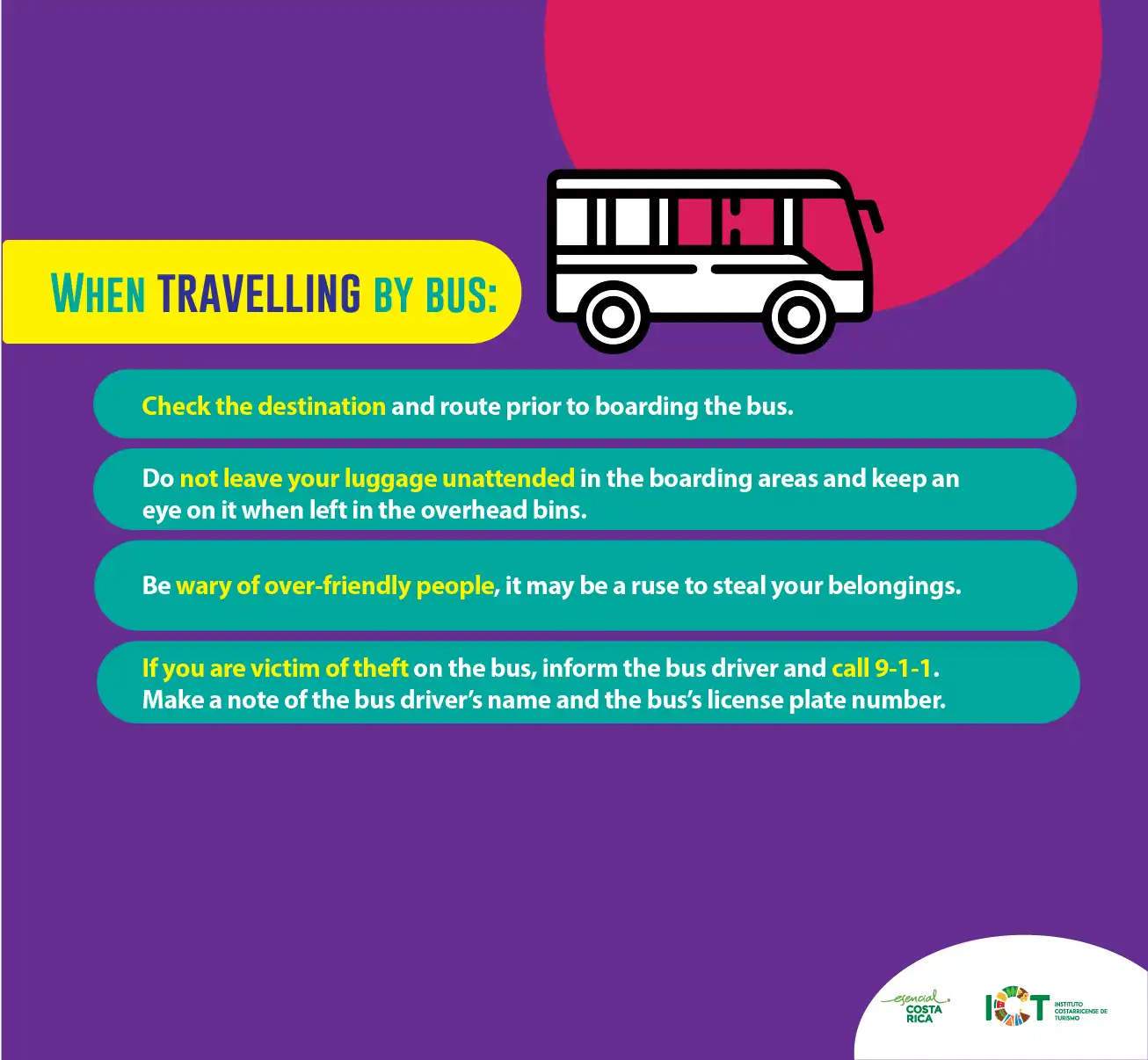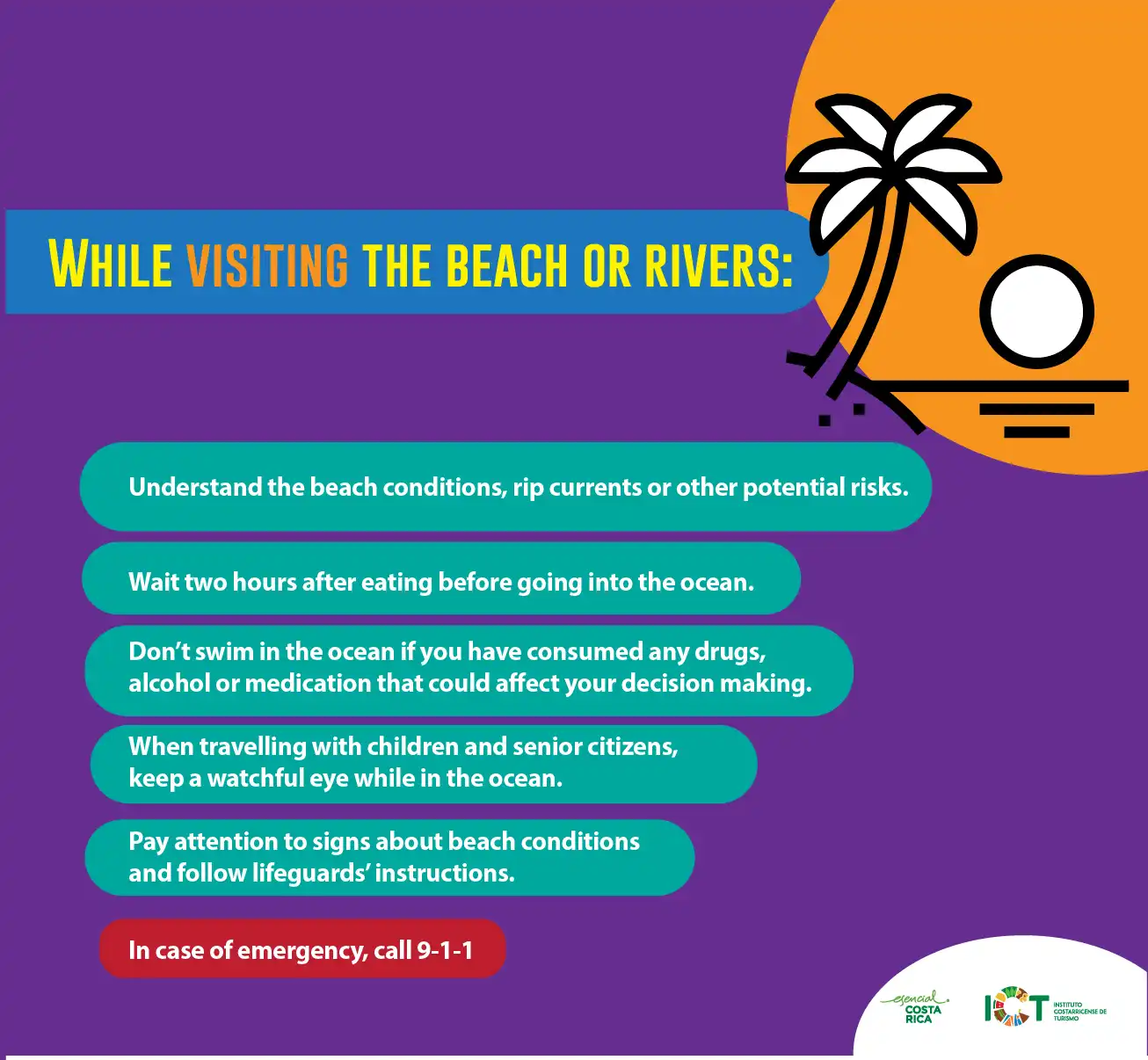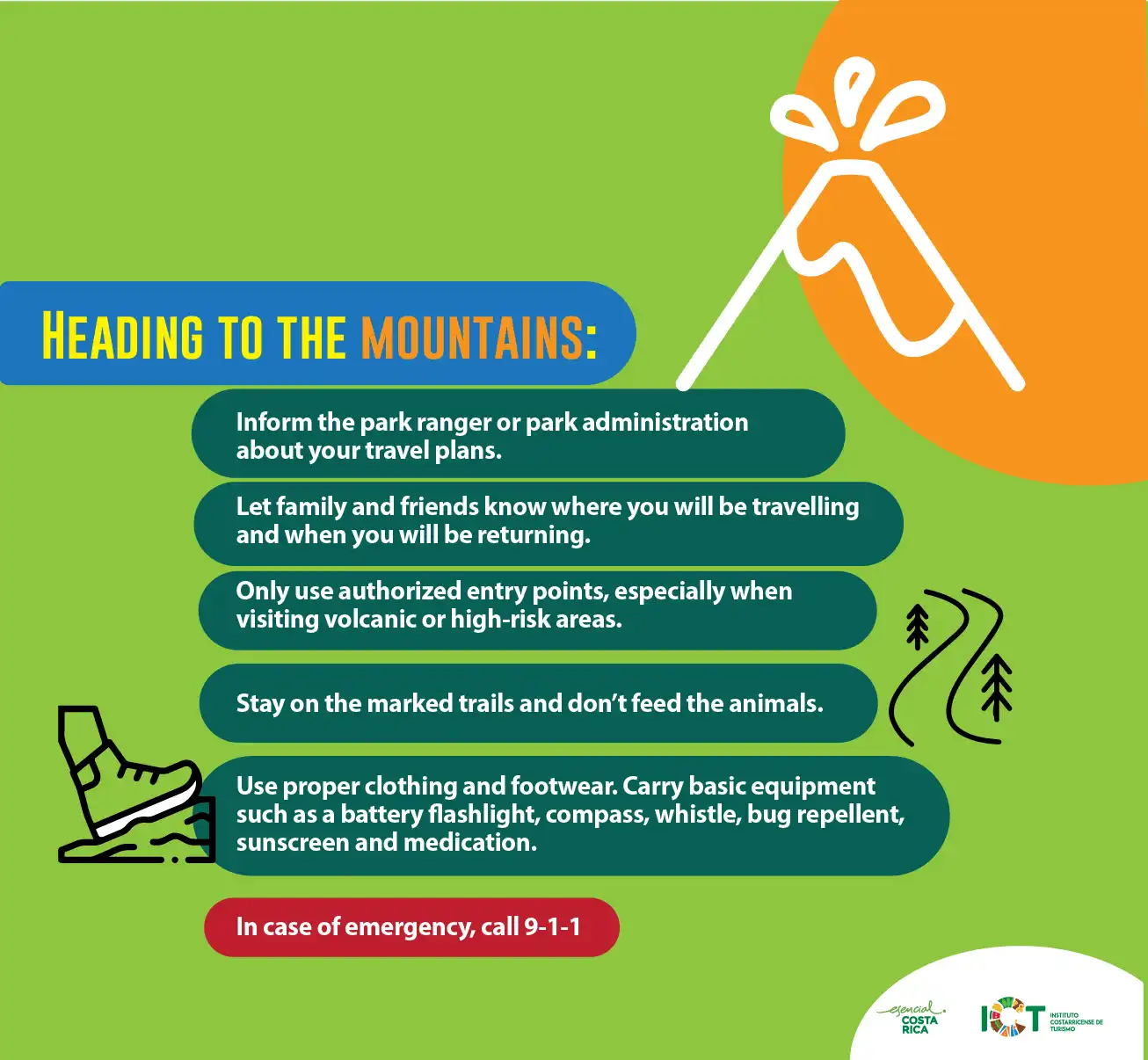
Tips for travelers
Tips for travel to Costa Rica
We want you to get to know every corner of our beautiful country, travel like a local, enjoy and be safe, having in mind the following recommendations:
Some travelers require a visa to visit Costa Rica, so check the list of countries before you buy your ticket and verify the entry requirements according to the country where your passport was issued.
Costa Rica is a place where nature always rules and the adventure awaits, just remember:
- Book tours offered by authorized travel agencies
- Always check the local weather conditions and forecasts before you take a tour.
- Make sure the tour guide provides you the safety instructions and the activity´s regulation before starting the tour.
- Ensure the company has the operating permit of the Ministry of Health, insurance policies and certified tour guides.
Going on adventure safely
Live exhilarating adventures in any of our rivers like Sarapiquí, Río Peñas Blancas, Balsa, Río Toro, Pacuare, Savegre, Río Reventazón and Naranjo.
Always wear a life vest, helmet and use an oar.
Wear protective gear: waterproof shoes, tennis shoes or similar, shorts, shirt, or bathing suit, as well as sunscreen.
Bring a towel, clothing and shoes to change after the tour.
The minimum age varies according to the type of tour, the season, the river´s level and the policies of the company. Generally, 8 years old is the minimum age for the tour.
It is important for you to know how to swim.
Avoid bringing anything of value.
Companies will provide an "Acknowledgement of Risk and Release of Liability" waiver for you to read, fill out and sign.
Be sure that you receive safety instructions from the tour guide, before and during the tour.
The maximum weight allowed per person is 135 kg or 300 lbs.
How fast can you go on a zip line? Up to 90 miles? You must check it out!!!
Be sure that the guides give the necessary instruction before starting such as the braking system, how to situate yourself along the cables, knee-bending, etc.
Check that the harness, helmet, and security cable are properly in place before pushing off.
Ziplining is permitted for 6 years old and up, with a minimum weight of 48.5 lbs. (22 kg) and a height of 4.75 ft (1.45 m).
Weight should not exceed 300 lbs. (135 kg), and height, 7ft. (2.15 meters).
Live the adrenaline on four wheels! Remember to wear a helmet, appropriate clothing, eye protection, and preferably boots and gloves.
Four wheelers are not to be ridden by minors under 16 years old.
Avoid sudden acceleration or braking on slippery surfaces.
Try to travel in groups, accompanied by an experienced tour guide, using the necessary communication equipment.
In Costa Rica, it is prohibited to ride four wheelers along the beach or heavy trafficked roads.
Avoid dangerous or sandy slopes.
Hundreds of waterfalls are waiting for you! Remember to check local weather conditions and forecasts before going rappelling and before the climb.
Wear comfortable and durable shoes, light-weight clothes, sunscreen, insect repellent.
Be sure to bring along the necessary equipment and secure it before starting the excursion.
Ride in the most beautiful landscapes and mountains! Don´t forget to wear a helmet, long pants, durable shoes, sunscreen and insect repellent. Avoid shouts or sudden movements near the horse, as you could startle it. Be alert along the trail and enjoy the ride.
Biking through the Ruta de los Conquistadores is one big challenge!
When you go biking, before setting out, become familiar with the route, type of slopes and necessary equipment.
Wear the proper equipment like helmet, knee pads, shin guards, elbow pads, gloves, reflective clothes or vest, and bring a small tool kit.
Check the bike condition before setting out.
It is recommended to ride in groups with an experienced tour guide.
Check the weather and ocean conditions before setting out.
Everybody on board must wear a life vest.
Make sure the boat has a first aid kit on board.
Before casting your line into the water, make sure there is no one behind you.
Protective gloves are recommended.
Wear a cap or brimmed hat, sunscreen, sunglasses, light-weight clothes, and appropriate footwear to protect your feet against sharp objects and slipping.
Avoid drinking alcohol or taking other types of drugs while on the boat.
Always fish with someone who is experienced in the sport. Request the name of the location or the nearest town for guidance in case of an emergency.
You can´t miss the waves and cool waters; just remember to always stay alert about ocean conditions since they are dynamic and constantly changing.
Avoid surfing in ocean conditions that are beyond your skill level. If you are a beginner, look for areas to surf with few people around. If surf lessons are offered in the area, make sure an expert give them. Don´t leave your belongings unattended at the beach. Use sunscreen. On some beaches, there may be crocodiles, so just ask people around before surfing.
Costa Rica is full of amazing hikes and adventures so be sure to back a good pair of walking shoes. Thoroughly enjoy your time while feeling comfortable!
Wear light-weight clothes, cap or brimmed hat, sunscreen and insect repellent.
Bring snacks and water.
Check local weather conditions and forecasts before the hike and bring a poncho.
If you need information regarding the trail ask a professional tour guide or a local.
Avoid hiking in virgin forests and unmapped shortcuts.
Let someone know about your route and estimated time of return. If you are traveling in a group, stay together on the same trail.
Avoid touching or eating fruits, and tasting plants that you are unfamiliar with.
In Costa Rica, it is prohibited to remove and sell wild plants or animal species.
Infographics for your safety
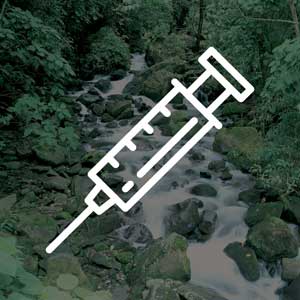
Inoculations
The health care system in Costa Rica is very good, both private and public. Although, basic vaccines for hepatitis A and B are recommended, as well as rabies and tetanus, before making the trip.
The government of Costa Rica requires the yellow fever vaccine certificate when traveling from countries in Africa (Angola, Benin, Burkina Faso, Cameroon, Democratic Republic of the Congo, Gabon, Gambia, Guinea, Liberia, Nigeria, Sierra Leone, Sudan), Venezuela, Colombia, Peru, Ecuador, Brazil and the Republic of Guyana. The vaccine must be administered at least 10 days before the start date of your trip.
Solo Female Travel
We want you to enjoy exploring the beauty and culture of our country. And if you are traveling alone, please take the following precautions:
- Use official transportation only.
- Avoid walking, jogging, or sightseeing alone in secluded areas, especially at night.
- Do not share the details of your itinerary on social media or with strangers.
- Understand the risks of traveling alone and being with people you do not know.
- You can trust the police. They are here to help you.
- Always keep in touch with your family and friends.
- In case of emergency or suspicious behavior, dial 9-1-1.
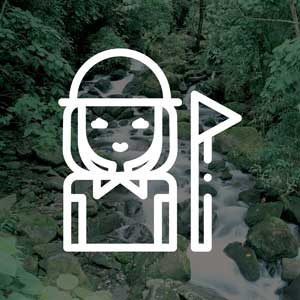
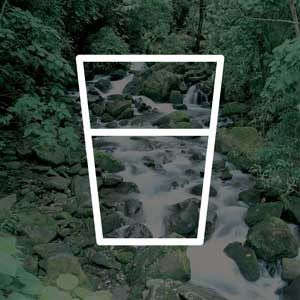
Water
Imagine you find yourself running low on bottled water and your only source is the water from the tap. You’re in luck! The tap water in Costa Rica is completely drinkable.
Food
The biggest meal of the day in Costa Rica is lunch. Make lunch the main meal of your day and save your money for more adventures. Head to a soda (a small, locally owned cafe) or the local market for the freshest and most authentic cuisine.
It is easy to find restaurants, sodas, cafes, bistros, and bakeries. The cuisine is quite extensive and includes both national and international options.
In restaurants and hotels, 13% Value Added Tax and a 10% tip are included in the final price; however, if you are more than happy with the service and want to leave a gratuity, it will be welcome.
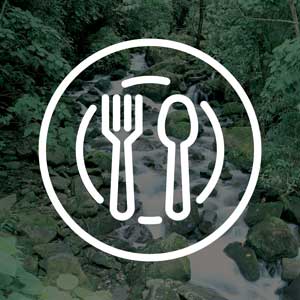
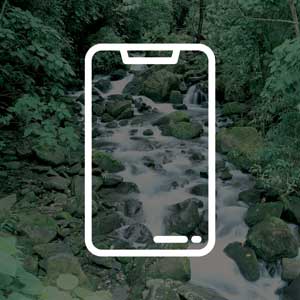
Cell Phone
An unlocked cell phone will work in Costa Rica. But remember to call your wireless provider before you go to add global roaming capabilities to your plan.
You can also buy a SIM prepaid card and use your unlocked cell phone in Costa Rica. Find SIM cards at the Kolbi (the national telecommunications company) booth at the airport, or in any telephone company store around, such as Claro and Movistar. A local line is not required to dial 9-1-1 just in case of emergency.
Money Tips
Traveling on a budget? No problem. Costa Rica has a ton a things to do for travelers on almost any budget:
- The colón is the currency of Costa Rica.
- US$ dollars and major credit cards are widely accepted.
- Exchange money only at banks and approved change offices. Check exchange rate here
- Bank transactions require a valid passport (not a copy nor a picture).
- ATMs are located throughout the country. Some of them remain closed from 11:00 p.m. to 5:00 a.m. Remember not to flash your cash.
- Sales tax or Value Added Tax (VAT) is 13%. It is included in the final price of every service or product purchase.
- The departure tax should be included in most of the airline tickets. For those flight tickets where it is duly stipulated that they do not include the departure tax, you must pay $29 per person, either in dollars, colones (local currency), credit or debit card.
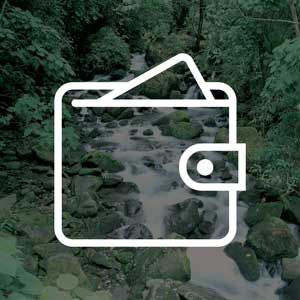
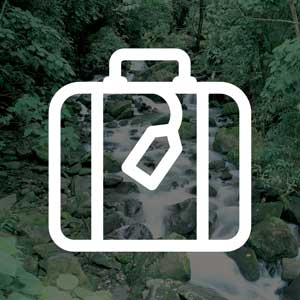
It’s always best to travel light
When you’re headed to Costa Rica, travel light. If there’s a way to avoid checking baggage, do it. Play it safe and carry on. You’ll be able to take advantage of hotel wash rooms and laundromats on your journey and the less you have to keep up with, the better. If you are checking baggage, remember to weigh bags before you get to the airport.
Try to pack only what is necessary, cool clothes that are easy to wash and dry, since airlines and tour operators have weight restrictions on luggage, and you will probably move from one place to another.
Include in your luggage all the medication you may need if you have a medical condition, since some medications in Costa Rica require a certified prescription.
Exploring
We want you to have an incredible time exploring Costa Rica safely:
- Always take care of all your belongings and valuables, even when traveling by bus.
- Carry your backpack in front of you.
- Avoid unsolicited help from strangers.
- Avoid walking in isolated places and places without lighting.
- Check your map and mobile phone in secure areas.
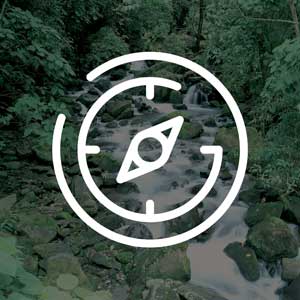
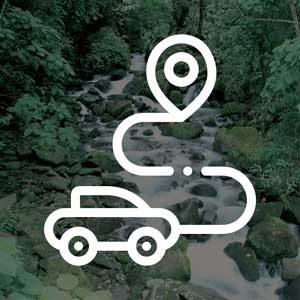
Keeping safe on the road
Driving a car in Costa Rica gives you the freedom to navigate the beautiful landscape at your leisure. But there are a few things to keep in mind before you begin your adventure.
- If you experience a mechanical issue or a flat tire avoid stopping in lonely places and don’t accept unsolicited help from strangers. It is better to call the Rent-a-Car or dial 9-1-1 to request help.
- Don’t leave any valuables unattended in your car – such as credit cards, cash, jewelry, or your passport. Use public parking lot with surveillance.
- Use a GPS or a GPS navigation app. It’ll save time and prove convenient when exploring. Just make sure you have a chip or an international data plan!
- The terrain can get more adventurous depending on where you choose to go. So keep that in mind when renting your vehicle.
- Verify the condition of the car and its required safety equipment (warning triangles, reflective vests, lug nut wrench, spare tire and a fire extinguisher).
- When renting the car, read the contract thoroughly to understand what is covered and what is not. Ask for details of car policies and insurance. Be aware of all the details about the insurance policies.
Looking for a place to stay?
Mountain Lodge? All inclusive hotels? Luxury? Mountain and beach? Cozy cabins for a romantic outing or honeymoon? A hostel maybe? And more difficult is deciding among the hundreds of lodging options that Costa Rica offers you, and a wide variety for all budgets
- No matter which one you choose, when booking a hotel ask for a written confirmation of the service and cancelation policy.
- Do not give any information about your debit or credit card over the phone.
- Outlets are 110 V, with standard US two prong plugs. Use the hotel’s safe-deposit box.
- When you go on a tour close to your hotel, bring a copy of your passport.
- Ask the front desk for the safest routes and means of transportation, especially at nighttime.
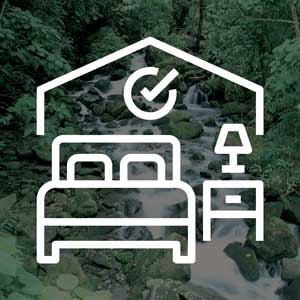
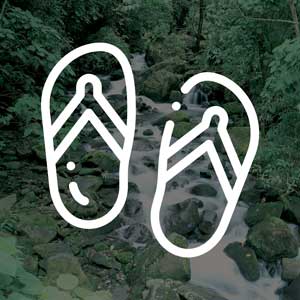
Footwear
When you’re headed on vacation, the idea is to keep it as stress-free as possible. Pay attention to the little things to avoid any snags. BRING THE RIGHT SHOES! There are a ton of fun things to do in Costa Rica and you don’t want your footwear to limit you or give you blisters. A pair of sandals and some decent sneakers should do fine. If you plan on doing some serious hiking or climbing, consider some heavier duty options.
Feel The Sand
- Costa Rica is a year-round destination! Go get a tan, go surfing and walk on the beach, but don't leave your belongings alone when you do.
- Ask locals or surfers about the beach conditions and about rip currents.
- If someone is at risk, and you haven't been trained in first aid, seek for help.
- When traveling with friends, don't joke around in a way that may put your life or others at risk.
- Keep children, elderly people or people with physical limitations close to you, and avoid swimming alone.
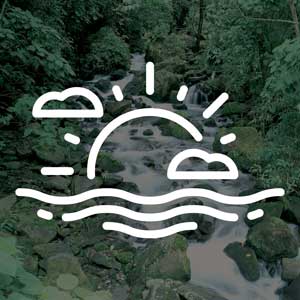
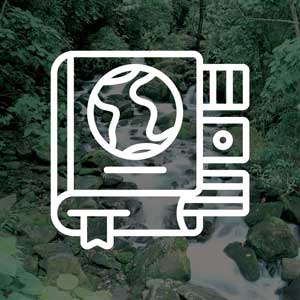
Local Language
Many Costa Ricans speak English quite well, but remember the native tongue is rooted in Spanish. When you’re planning a trip, we suggest brushing up on your Español. Download some audio lessons on your mobile device and listen while traveling or keep a pocket translator handy. Chat with the locals–maybe they can suggest an excursion you had not planned on!
| Ahuevado: | To be sad or down. |
| Bañazo: | Ridicule, shame.What bañazo, have failed the test! |
| Bateador: | Person that is usually guessing (no certainty of the truth). |
| Bicho: | All kinds of bugs or insects. |
| Birra: | Beer, beers in plural means "birras" |
| Bocas: | Appetizers served to eat liquor makers. |
| Brete: | Work. bretear (v.): to work. July bretea much, I see very tired. |
| Chancecito: | Time. Give me just a chancecito to help you fix dinner. |
| Chavalo: | (Noun) Boy, child. There are a chavalos who ignore and continue to play into the street. |
| Chichí: | (m.) Child (a) |
| Chinear: | Give love, pamper, treat well. |
| Chiva, Chivísima: | Expression among young denoting pleasure, something cool. |
| Chunche: | Thing, object. chunchero: lots of things. |
| L.j. : | Let's go,"los juimos" (nos fuimos). |
| Macho, Machito: | Person of hair and clear skin. |
| Pa'l tigre: | The opposite of pure life, be wrong for some reason. |
| Pacho: | Comic, funy situation, embarased situation |
| Pele el ojo!: | Expression of warning, such as "! Beware" |
| Platudo: | Wealthy. |
| Porfa: | Please, abreviation of por favor |
| ¡Soque!: | Expression to hurry. |
| ¡Suave!: | Expression to ask them to wait or stop. |
| ¡Upe!: | Flavourful used to knock on the door. |
| Wachin pupilas: | Be alert, "look to Christ," pay attention. |
| Yodo: | Coffee |
| Zarpe: | Last drink the Ticos are taken, the zarpe is not always the last one |
